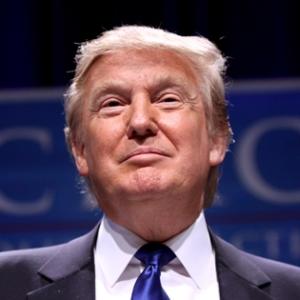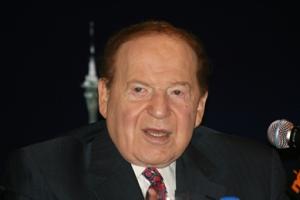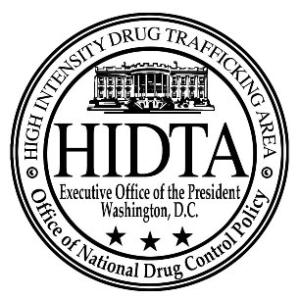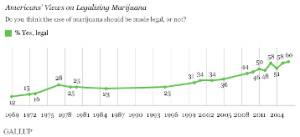The Donald briefly took up drug policy over the weekend, but his policy proposals went almost unnoticed in the midst of his bizarre drug test demand.
The Miami Herald endorses the Florida medical marijuana initiative, medical marijuana is playing a role in the Utah gubernatorial race, and more.
Los Angeles attempts to prepare for a new era, HIDTA gets an expansion, Indiana voters signal they are ready for medical marijuana, and more.
Million dollar donations flow to the "no" forces in Arizona and Massachusetts, the Arizona initiative is in a dead heat according to a new poll, Donald Trump talks drugs and demands Hillary take a drug test, and more.
Discount Tire could pay a price for opposing the Arizona legalization initiative, the UFW endorses California's Prop 64, the White House scoffs at Trump's drug test demand, and more.
Two polls, one state-level and one national, augur good things for marijuana legalization, civil society mobilizes to defeat a federal fentanyl death penalty bill, Canadians consider where they're going to buy legal marijuana, and more.
This article was produced in collaboration with AlterNet and first appeared here.
Reeling from allegation after allegation of sexual misconduct, Republican presidential contender Donald Trump tried to go on the offensive on drug policy over the weekend, but in a manner typical of his campaign, he touched only briefly on the topic before flying off on new tangents, and he began his drug policy interlude with a bizarre attack on Hillary Clinton.

Donald Trump talks drugs. (Gage Skidmore/Wikimedia)
At a
speech at a Toyota dealership in Portsmouth, New Hampshire, Saturday, the GOP candidate claimed that Clinton was on performance-enhancing drugs before their last debate and suggested drug tests were in order.
"Why don't we do that?" he demanded, adding that Clinton was likely "getting pumped up" as the prepared for that debate.
"We should take a drug test prior cause I don't know what's going on with her. But at the beginning of last debate, she was all pumped up at the beginning and at the end it was like, oh take me down. She could barely reach her car," he claimed.
The claim didn't come out of nowhere. Trump was echoing an ad from two weeks ago from the pro-Trump super PAC Make America Number 1 that showed Clinton coughing and then stumbling to her van on the morning of September 11. The super PAC is bankrolled by Trump backer and big time conservative donor Robert Mercer, who dropped $2 million on the PAC in July.
The unfounded allegation of Clinton pre-debate drug use and the demand for a drug test grabbed media attention, but if Trump was attempting to turn a corner and shift the campaign's focus away from his peccadillos, his strange accusation against Clinton only served to raise more questions about his temperament and suitability for the nation's highest office.

Trump wanted Hillary Clinton to submit to a pre-debate drug test. (Wikimedia)
And it virtually smothered any discussion of actual drug policy proposals Trump made during the speech. While Trump has obliquely addressed the heroin and prescription
opioid problem in the past, Saturday's speech was the first time he tried to put any flesh on his proposals for dealing with it.
If anyone were paying attention to the policy details amidst all the racket about the drug test challenge, they would have heard drug policy proposals rooted squarely in the failed drug war strategies of the last century.
Trump would, he said, block drugs from coming into the US by -- you guessed it -- building the wall on the Mexican border. He would also seek to tighten restrictions on the prescribing of opioids. And he would reinstitute mandatory minimum sentences for drug offenders.
"We have 5 percent of the world's population but use 80 percent of the prescription opioids," Trump said, eerily echoing former rival Jeb Bush, who used the same language while campaigning in the state earlier this year.
That statistic is aimed at showing that the US is over-prescribing narcotic pain killers, but according to the World Health Organization, the actuality is that in much of the rest of the world, they are underprescribing them. In fact, the WHO said that in more than 150 countries with 83 percent of the global population, there is virtually no access to prescription opioids for relief of pain.
And the under-treatment of chronic pain isn't just a problem in India or China or Africa. According to the National Institute of Health, more than 50 million Americans suffer significant chronic or severe pain. An opioid policy that focuses only on reducing prescriptions without addressing the need for access to pain killing opioids for actual pain is only half a policy.
When it comes to the border, Trump correctly asserts that Mexico is the source of most of the heroin in the US (it produces 45% itself and another 51% comes from Latin America, mostly Colombia and Guatemala, often through Mexico), but relies on a hyper-interdiction policy ("build the wall") to thwart it. Interdiction -- blocking the flow of drugs into the country -- has been a pillar of US drug policy for decades, but despite massive border build ups and the doubling of the number of Customs and Border Patrol agents in the past 15 years, the drugs still flow.

Long after their popularity wanes, Trump calls for new mandatory minimum sentences for drug offenders. (nadcp.org)
Interdiction hasn't done the trick so far, and there is no indication that even a
Trumpian wall would make a difference. The creativity of drug smugglers is legendary, and the economic incentives under drug prohibition are great. As the saying goes, "Build a 50-foot wall, and they'll bring a 51-foot ladder" (or a tunnel).
The third component of his drug policy is a Reaganesque "lock 'em up." In his New Hampshire speech, he saluted running mate Mike Pence for increasing mandatory minimums for drug offenders as governor of Indiana.
"We must make similar efforts a priority for the nation," Trump said.
That position flies in the face of a growing bipartisan consensus that the use of mandatory minimums for drug offenses is draconian, ineffective, and harms mainly minority populations. During the Obama administration, mandatory minimum sentences have been reduced with congressional assent, and Obama himself has granted commutations to hundreds of drug war prisoners serving those draconian sentences, with little dissent.
Trump's drug policy is but a sketch, but even its vague outlines reflect outdated approaches to the issue and a quickness to resort to cheap demagoguery on the issue. Still, while there is plenty of room for discussion of his approach, Trump has apparently already left the issue behind, barely mentioning it since Saturday as he tilts at other windmills.
(This article was prepared by StoptheDrugWar.org's lobbying arm, the Drug Reform Coordination Network, which also pays the cost of maintaining this web site. DRCNet Foundation takes no positions on candidates for public office, in compliance with section 501(c)(3) of the Internal Revenue Code, and does not pay for reporting that could be interpreted or misinterpreted as doing so.)
back to top
The Miami Herald endorses the Florida medical marijuana initiative, medical marijuana is playing a role in the Utah gubernatorial race, and more.
ArkansasLast Thursday, the state Supreme Court okayed the medical marijuana amendment. The state's high court has rejected a bid by medical marijuana opponents to prevent state officials from counting votes for the Arkansas Medical Marijuana Amendment, on the ballot as Issue 6. A competing medical marijuana initiative, the Arkansas Medical Cannabis Act, also known as Issue 7, is also on the ballot, but still faces a court challenge over signature submissions.
California
Last Thursday, a Los Angeles marijuana regulation initiative qualified for the March 2017 ballot. The Los Angeles Marijuana Regulation and Safety Act has qualified for the March 2017 ballot, the city clerk confirmed. A campaign led by the United Cannabis Business Alliance and the Citizens' Coalition to Protect Patients and Neighborhoods has collected enough validated signatures to qualify, the clerk said. The act would bring the city in compliance with new state medical marijuana regulations.
Florida
On Monday, the Miami Herald endorsed the medical marijuana initiative. The influential newspaper has come out in support of the Amendment 2 initiative, citing the legislature's unwillingness to enact a meaningful medical marijuana law. "In 2014, the Legislature legalized some strains of marijuana for patients with severe seizures. Last year, lawmakers legalized full-scale medical marijuana, but only for the terminally ill," the newspaper noted. "Once again, initiative foes argue the legalization of medical cannabis should be handled by the state Legislature instead of being enshrined into the Florida Constitution. We agree, but since lawmakers have repeatedly failed to pass comprehensive legislation, sick Floridians want this relief. For their sake, we recommend YES on Amendment 2."
Indiana
Last Friday, a new poll had overwhelming support for medical marijuana. A new WTHR/HPI Indiana poll finds nearly three-quarters of likely Hoosier voters are ready for medical marijuana. The poll had 73% in support, with only 25% opposed. Even among Republicans, support was at 59%. Medical marijuana bills have been introduced, but have gone nowhere in the Republican-controlled state legislature.
Iowa
On Tuesday, the governor said he was open to renewing the state's CBD cannabis oil law.Gov. erry Branstad (R) said Tuesday he was open to working with advocates to extend a soon-to-end law that allows the use of CBD cannabis oil for patients with epilepsy. The law is set to expire next July 1. "We don't want people to lose something they think will be helpful or that has been helpful to members of their family," Branstad said. "I intend to work with the legislature as well as with the (Governor's) Office of Drug Control (Policy) as we look at what is the appropriate thing to do.
Utah
Last Thursday, the feds said they won't prosecute the Democratic gubernatorial candidate's wife, but the state will. Mike Weinholtz (D) is running for governor of Utah, and his wife is being prosecuted for medical marijuana offenses. Donna Weinholtz, who "uses marijuana to seek relief from chronic neck, back and knee pain brought on by arthritis," was the subject of a federal investigation after she got caught attempting to mail a package containing marijuana, but the feds have declined to prosecute, saying the case would more appropriately be handled by Utah authorities. The Tooele County prosecutor is moving forward with the case.
On Wednesday, Weinholtz's wife pleaded guilty to state charges, and he called for medical marijuana legalization. Democratic gubernatorial candidate Mike Weinholtz called for the legalization of medical marijuana in the state Tuesday just hours after his wife pleaded guilty in state court to misdemeanor pot possession charges over marijuana found in their home. Donna Weinholtz used marijuana medicinally to relieve chronic pain, the couple said. "I, like many Utahns, made a deliberate and conscious decision to use cannabis knowing full well that it is against the law," she said. "I have faith the law will change."
[For extensive information about the medical marijuana debate, presented in a neutral format, visit MedicalMarijuana.ProCon.org.]
(This article was prepared by StoptheDrugWar.org's lobbying arm, the Drug Reform Coordination Network, which also pays the cost of maintaining this web site. DRCNet Foundation takes no positions on candidates for public office, in compliance with section 501(c)(3) of the Internal Revenue Code, and does not pay for reporting that could be interpreted or misinterpreted as doing so.)
back to top
Los Angeles attempts to prepare for a new era, HIDTA gets an expansion, Indiana voters signal they are ready for medical marijuana, and more.
Medical MarijuanaIndiana Poll Has Overwhelming Support for Medical Marijuana. A new WTHR/HPI Indiana poll finds nearly three-quarters of likely Hoosier voters are ready for medical marijuana. The poll had 73% in support, with only 25% opposed. Even among Republicans, support was at 59%. Medical marijuana bills have been introduced, but have gone nowhere in the Republican-controlled state legislature.
Los Angeles Marijuana Regulation Initiative Qualifies for March 2017 Ballot. The Los Angeles Marijuana Regulation and Safety Act has qualified for the March 2017 ballot, the city clerk confirmed Thursday. A campaign led by the United Cannabis Business Alliance and the Citizens' Coalition to Protect Patients and Neighborhoods has collected enough validated signatures to qualify, the clerk said. The act would bring the city in compliance with new state medical marijuana regulations.
Law Enforcement
Drug Czar Designates More Counties as High Intensity Drug Trafficking Areas. Director of the Office of National Drug Control Policy (ONDCP -- the drug czar's office) Michael Botticelli announced Thursday that an additional 18 counties have been granted the High Intensity Drug Trafficking Area (HIDTA) designation. That designation will allow them access to federal anti-drug resources granted to HIDTAs. Six counties were added to the Appalachian HIDTA, two to the New York/New Jersey HIDTA, four to the Ohio HIDTA, two to the Baltimore/Washington HIDTA, and six to the Wisconsin HIDTA. Created by Congress in 1988, there are now 28 HIDTAs located in 49 states, Puerto Rico, the US Virgin Islands, and the District of Columbia.
International
Turkey Okays Cannabis Production in 19 Provinces. The Turkish Food, Agriculture and Livestock Ministry announced late last month that it will allow marijuana production in 19 provinces across the country "in a bid to combat illegal production." News reports are unclear about whether this refers to recreational or medical marijuana or industrial hemp.
back to top
Million dollar donations flow to the "no" forces in Arizona and Massachusetts, the Arizona initiative is in a dead heat according to a new poll, Donald Trump talks drugs and demands Hillary take a drug test, and more.

Las Vegas casino magnate Sheldon Adelson bankrolls anti-marijuana reform efforts. (Creative Commons)
New Arizona Poll Has Legalization in Dead Heat. A poll from Data Orbital released Friday has the Prop 205 legalization initiative in a statistical tie. The poll had support at 45%, with 44% opposed, 5% undecided, and, apparently, 6% unaccounted for. Pollster and political consultant George Khalaf said the "no" side was making gains because of heavy TV advertising in recent weeks. "It's not that good for a proposition to be this far below 50%," he said of the "yes" side. "It's not a great sign for legalization, unless they outspend (the 'no' side) in next few weeks or younger voters' turnout is larger than anticipated."
Discount Tire Kicks in $1 Million to Defeat Arizona Legalization. The Scottsdale-based Discount Tire Company has contributed a million dollars to Arizonans for Responsible Drug Policy, the group leading the "no" campaign against Prop 205. The company is the largest privately held company in the state, and has also contributed to controversial Sheriff Joe Arpaio. The "no" campaign has also seen recent large donations from Empire Southwest for $200,000 and SAM (Smart About Marijuana) Action for $115,000.
Delaware Poll Has Solid Majority for Legalization. A new poll from the University of Delaware's Center for Political Communication has support for marijuana legalization at 61%. Only 35% of respondents said they were opposed. The poll comes as state Sen. Margaret Rose Henry (D-Wilmington) says she plans to introduce a legalization bill when the legislature reconvenes.
Sheldon Adelson Kicks in $1 Million to Defeat Massachusetts Legalization. Las Vegas casino magnate and ultra-conservative philanthropist Sheldon Adelson had donated $1 million to the Campaign for a Safe and Healthy Massachusetts, which is leading the opposition to the Question 4 legalization initiative. Even with the Adelson money, however, the "yes" side has out fundraised the "no" side by a margin of two-to-one. Yes on 4 has raised more than $3.3 million, while the opposition has raised only $1.6 million.
Drug Policy
Trump Talks Drug Policy, Demands Hillary Take Drug Test. Donald Trump sketched out a policy aimed at the heroin and opioid crisis during a speech in New Hampshire Saturday, but it was largely drowned out by his call for Hillary Clinton to undergo a drug test before their next debate. Trump said he suspected she was on something during the last debate. When it came to heroin and opioids, Trump said he would solve the problem by building a wall on the Mexican border, moving to reduce the prescribing of opioid pain medications, and resorting to mandatory minimum sentences for drug offenders.
International
Scottish National Party Backs Medical Marijuana.Meeting at its annual national conference, the Scottish National Party backed the medicinal use of marijuana. The vote doesn't necessarily mean the Scottish government will adopt medical marijuana, and drug policy is an area specifically reserved to the UK national parliament, so that body would have to act as well.
(This article was prepared by StoptheDrugWar.org's lobbying arm, the Drug Reform Coordination Network, which also pays the cost of maintaining this web site. DRCNet Foundation takes no positions on candidates for public office, in compliance with section 501(c)(3) of the Internal Revenue Code, and does not pay for reporting that could be interpreted or misinterpreted as doing so.)
back to top
Discount Tire could pay a price for opposing the Arizona legalization initiative, the UFW endorses California's Prop 64, the White House scoffs at Trump's drug test demand, and more.

Lebanese civil society organizes for drug reform and harm reduction. (YouTube screen grab)
Arizona's Discount Tire Hit With Boycott After Donating $1 Million to Keep Pot Illegal. The company and its billionaire owner, Bruce Halle, are facing "a growing boycott movement" after he donated a million dollars to the campaign against Prop 205, the legalization initiative. The company had already been the object of a boycott after Discount Tire stores posted "Re-Elect Sheriff Joe Arpaio" signs in the windows. Now, in addition to Latinos, who overall loathe Arpaio, Halle is facing the ire of half the population, who will vote to legalize it next month.
United Farm Workers Endorse California Legalization Initiative. The UFW, the nation's largest farm workers' union, has endorsed the Prop 64 legalization initiative. "Proposition 64 will bring legal justice and job training to communities of color that have been cynically targeted by the failed war on marijuana," says UFW President Arturo S. Rodriguez. "It also extends strong worker and safety protections for those who toil in the fields of this industry and work in every part of the supply chain. UFW is pleased to endorse it."
Delaware Activists Launch Legalization Petition. Less than a week after Sen. Margaret Rose Henry (D-Wilmington) said she would file a legalization bill next year, and the same day a University of Delaware poll said support for legalization was at 61%, activists in the First State announced a petition signature drive to influence legislators. Delaware does not have an initiative process, so any petitions are non-binding, but would show public support for the move.
Medical Marijuana
Miami Herald Endorses Florida Medical Marijuana Initiative. The influential newspaper has come out in support of the Amendment 2 initiative, citing the legislature's unwillingness to enact a meaningful medical marijuana law. "In 2014, the Legislature legalized some strains of marijuana for patients with severe seizures. Last year, lawmakers legalized full-scale medical marijuana, but only for the terminally ill," the newspaper noted. "Once again, initiative foes argue the legalization of medical cannabis should be handled by the state Legislature instead of being enshrined into the Florida Constitution. We agree, but since lawmakers have repeatedly failed to pass comprehensive legislation, sick Floridians want this relief. For their sake, we recommend YES on Amendment 2."
Iowa Governor Open to Renewing CBD Cannabis Oil Law.Gov. Terry Branstad (R) said Tuesday he was open to working with advocates to extend a soon-to-end law that allows the use of CBD cannabis oil for patients with epilepsy. The law is set to expire next July 1. "We don't want people to lose something they think will be helpful or that has been helpful to members of their family," Branstad said. "I intend to work with the legislature as well as with the (Governor's) Office of Drug Control (Policy) as we look at what is the appropriate thing to do.
Drug Policy
White House Scoffs at Trump Drug Test Proposal. White House press secretary Josh Earnest Monday reacted with incredulity to Donald Trump's call to drug test Hillary Clinton before tomorrow night's debate. "You're telling me the candidate who snorted his way through the first two debates is accusing the other candidate of taking drugs?" Earnest said. "That's a curious development in the campaign." But was he really suggesting that Trump was on drugs? "Not at all," he said. "Just trying to have a little fun. You guys are so serious today," he told assembled reporters.
International
Lebanese Drug Policy Group Tells Young People: Know Your Rights! A Lebanese nonprofit organization has launched a campaign to empower young people who are being criminalized for drug use, and to call on legislators to adopt an alternative drug policy approach. Skoun, the organization behind the initiative, is a Beirut-based organization that offers free and confidential drug treatment to those who seek it. Alongside its clinical work, Skoun campaigns for an end to Lebanon's punitive drug policies, and advocates for policies rooted in humanity, self-determination, health, and justice. The organization launched its Know Your Rights campaign in September. The project has three goals: empowering young people to know their rights during drug-related encounters with the law; shedding light on police abuse of power; and, stimulating debate around the effectiveness of current drug policies.
Dubai Prosecutors Seek Death Sentence for 0.07 Grams of Meth. Wow. Prosecutors in Dubai are seeking a death sentence for two men caught in possession of a miniscule amount of methamphetamine. Prosecutors claimed the men possessed the drugs -- less than a tenth of gram -- for drug trafficking purposes.
(This article was prepared by StoptheDrugWar.org's lobbying arm, the Drug Reform Coordination Network, which also pays the cost of maintaining this web site. DRCNet Foundation takes no positions on candidates for public office, in compliance with section 501(c)(3) of the Internal Revenue Code, and does not pay for reporting that could be interpreted or misinterpreted as doing so.)
back to top
Two polls, one state-level and one national, augur good things for marijuana legalization, civil society mobilizes to defeat a federal fentanyl death penalty bill, Canadians consider where they're going to buy legal marijuana, and more.
Marijuana PolicyNew Gallup Poll Has Support for Marijuana Legalization Nationwide at All-Time High. A Gallup poll released Wednesday has support for marijuana legalization at 60%, the highest level ever recorded by Gallup. Support had hit 58% in 2013 and 2015 Gallup polls, but has now climbed another two points. Nearly 80% of voters under 35 support legalization, as do two-thirds (67%) of Democrats and 70% of independents. Even among Republicans, support has doubled in the past decade and now sits at 42%. In 1969, when Gallup first asked the question, support was only 12%.
Massachusetts Legalization Initiative Up By 15 Points in New Poll. A new WBUR poll has support for the Question 4 initiative at 55%, with only 40% opposed. The poll measured likely voters. Support is up five points over WBUR's September poll.
Medical Marijuana
Utah Governor Candidate Calls for Medical Marijuana Legalization After Wife Pleads Guilty. Democratic gubernatorial candidate Mike Weinholtz called for the legalization of medical marijuana in the state Tuesday just hours after his wife pleaded guilty in state court to misdemeanor pot possession charges over marijuana found in their home. Donna Weinholtz used marijuana medicinally to relieve chronic pain, the couple said. "I, like many Utahns, made a deliberate and conscious decision to use cannabis knowing full well that it is against the law," she said. "I have faith the law will change."
Heroin and Prescription Opioids
Civil Society Mobilizes Against Fentanyl Death Penalty Bill. Nearly 100 groups working on criminal justice reform, including NAACP, Families Against Mandatory Minimums, and the Drug Policy Alliance Wednesday sent a letter to Representative Tom Reed (D-NY), opposing H.R. 6158, the HELP Act of 2016. The letter notes that "H.R. 6158 would also exacerbate the opioid epidemic our country is currently undergoing. The bill is out of step with the times, science, data, and public opinion and doubles down on 30 years of ineffective drug policy, and we ask that it be revised." The proposal would mean that individuals caught selling certain quantities of fentanyl or fentanyl-laced heroin would receive the death penalty or life without parole, if the sale is linked to an overdose fatality.
International
Poll Finds Canadians Split on Where Pot Should Be Sold. A new Insights West poll finds 36% of Canadians want pot sold in stand-alone stores, 29% want it sold in drug stores or pharmacies, and 16% think it should be sold in liquor stores. The federal government is expected to roll out a legalization bill early next year.
India MP Files Bill to Legalize Marijuana, Opium. MP Dr. Dharamvira Ghandi has filed a bill to legalize "traditional" and "non-synthetic" intoxicants. The bill would amend the Narcotic Drugs and Psychotropic Substances Act of 1985, which he says has failed: "Thirty years down the line, where do we stand? The fact of the matter is that the NDPS Act has not only failed in achieving its professed goals, but this 'War on Drugs' has delivered results directly opposite to what it aimed to achieve. There can be no better verdict and/or evaluation of such punitive drug laws than frank admission statement of the United Nations Conference on 12th March, 2009, admitting that 'the war on drugs has failed'," he said.
(This article was prepared by StoptheDrugWar.org's lobbying arm, the Drug Reform Coordination Network, which also pays the cost of maintaining this web site. DRCNet Foundation takes no positions on candidates for public office, in compliance with section 501(c)(3) of the Internal Revenue Code, and does not pay for reporting that could be interpreted or misinterpreted as doing so.)
back to top







